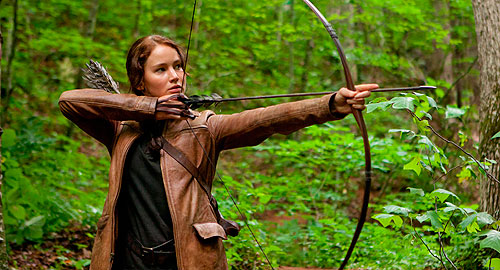
“The Hunger Games” topped the most anticipated movies of 2012 list for various entertainment portals. Thus, expectations were high for the first film installment of Suzanne Collins’ hugely successful trilogy. For the most part, it met them all with grace.
The film, directed by Gary Ross, begins just before the Reaping, the ceremony at which a male and a female between the ages of 12 and 18 are selected from each of the 12 satellite districts of Panem to participate in the annual Hunger Games, a televised fight to the death. The story revolves around Katniss Everdeen (Jennifer Lawrence), who volunteers in place of her 12-year-old sister Prim (Willow Shields), and Peeta Mellark (Josh Hutcherson), the two tributes from District 12.
Katniss and Peeta are then whisked off to the Capitol of Panem where they meet their mentor, Haymitch (Woody Harrelson). Katniss, understandingly, is initially cold and curt, but gradually warms up to Haymitch and Peeta, and retains this warmth throughout the Hunger Games, even allying herself at one point with a young tribute from another district named Rue (Amandla Stenberg). Peeta, on the other hand is softer and more sentimental than Katniss. Realizing the importance of gaining the public’s support, he eagerly crafts an appealing public persona. In the process, he declares he fell in love with Katniss the first time they met when they were kids and brands the two as star-crossed lovers, complicating matters both with the Capitol, as there can only be one victor, and with Gale (Liam Hemsworth), with whom Katniss shared a fair bit of chemistry back home.
Lawrence’s portrayal of Katniss is flawless; she is Katniss, and it becomes unimaginable that any other actress could play Katniss as Lawrence does. Hutcherson, especially with his boyish features, is also perfect as the sweet, caring Peeta. Even with the superior acting, the development of some of the crucial relationships is patchy, due to lapses in the script—how and why did Katniss choose to trust Rue, when, ultimately, Rue’s goal as a participant in the game was to kill her, and how and when did Katniss’ feelings for Peeta become so deep?
“The Hunger Games” is also visually stunning; the over-the-top extravagance of the Capitol—punctuated by Effie Trinket’s (Elizabeth Banks) gaudy attire and coordinating makeup, talk show host Caesar Flickerman’s (Stanley Tucci) perfectly coiffed blue monstrosity, gamemaker Seneca Crane’s (Wes Bentley) intricately designed beard—contrast sharply with the Dorothea Lange photograph-like poverty of District 12, and further the movie’s overall message.
However, what is lacking from the movie is its overall message. Yes, the plot itself reveals the injustices suffered by peoples under an autocratic government; the grim fact that participants are forced to create fake personas to attract sponsors whose support may mean the difference between life and death eerily mirrors the lives of reality TV stars. And yes, the mere idea of such a game is sickening. However, the criticisms are never explored in depth, and many viewers, especially those who have not read the books, may miss the deeper meaning behind the story. Being that “The Hunger Games” series was a response to the cynicism Collins felt at modern society, the lack of social criticism was disappointing.
Like any other movie, “The Hunger Games” has its flaws, but its flaws are relatively minor and the gripping plotline, superb acting and striking visuals are captivating enough to make it worthy of being the most anticipated movie of this year.

